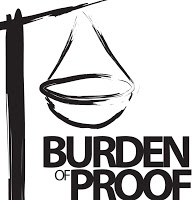 We tend to trust the experts. The impulse is right because the experts have more knowledge and expertise in the subject than we do. They know the nuances. But when the experts claim to be above critique by non-experts, that’s a problem. When they say (in so many words) “you can’t evaluate my claims because I am the smart one and you are the dummy,” they are presenting an empty appeal to authority. The experts often differ among themselves, so we have reason to question the experts. After all, they can’t all be right. The only way to determine who is right is to question the experts.
We tend to trust the experts. The impulse is right because the experts have more knowledge and expertise in the subject than we do. They know the nuances. But when the experts claim to be above critique by non-experts, that’s a problem. When they say (in so many words) “you can’t evaluate my claims because I am the smart one and you are the dummy,” they are presenting an empty appeal to authority. The experts often differ among themselves, so we have reason to question the experts. After all, they can’t all be right. The only way to determine who is right is to question the experts.
Thinking
October 12, 2022
April 29, 2022
Since we are not omniscient, we can be wrong about any number of things for which we think we are right. How would we ever know if we are, in fact, wrong? One way to do so is to actively engage with the best arguments of your ideological opponents. What are their criticisms of your view? What are their arguments for their own view?
Another way to check our beliefs is to be self-critical. How would you argue against your point of view? What would you identify as the weakest link in your argument? What presuppositions does your view require? What sorts of objections might opponents raise against your argument or view? In other words, try to disprove your point of view. You will strengthen it in the process, or perhaps, change it if you discover the evidence points in another direction.
When discussing our views, it is also helpful to be transparent about the weaknesses of our argument, our presuppositions, and address objections that others have raised against it. People will appreciate your honesty and it often makes your case more convincing.
December 31, 2021
The “why not say we don’t know?” response to theistic arguments
Posted by Jason Dulle under Apologetics, Atheism, Atheistic objections, Cosmological Argument, Epistemology, Moral Argument, Theistic Arguments, Thinking[10] Comments
 When Christians offer arguments for the existence of God based on the beginning of the universe or the objective nature of morality, some atheists will respond by asking, “Why can’t we just say we don’t know what caused the universe or what the objective source of morality is?” How might a thoughtful Christian respond?
When Christians offer arguments for the existence of God based on the beginning of the universe or the objective nature of morality, some atheists will respond by asking, “Why can’t we just say we don’t know what caused the universe or what the objective source of morality is?” How might a thoughtful Christian respond?
I would suggest that you turn the question around. Ask them, “Why can’t we just admit that God best explains the origin of the universe and the objective nature of morality?” The atheist wants to plead ignorance, but we are not ignorant on these matters. It’s not as if we don’t know what the options are. We do. And it’s not as if the evidence is equal for all options. We have solid scientific, philosophical, and logical evidence that points to God as the cause of the universe and ground of morality. In other words, we have knowledge, not ignorance. So why not just say we don’t know? It’s because that would be a false statement. We do know. The evidence clearly favors the theistic hypothesis.
November 2, 2021
Tactic for evangelizing the spiritually apathetic
Posted by Jason Dulle under Apologetics, Atheism, Atheistic objections, Tactics, Thinking[2] Comments
 When it comes to evangelism, some of the hardest people to work with are those who are apathetic toward spiritual things. They simply don’t care whether God exists. This is often a conversation stopper. If you want to press on a bit more, however, there are some tactics for doing so. I’ve offered some thoughts on this in the past (here and here), but as I was reflecting on this the other day again, I came up with another tactic you might find helpful.
When it comes to evangelism, some of the hardest people to work with are those who are apathetic toward spiritual things. They simply don’t care whether God exists. This is often a conversation stopper. If you want to press on a bit more, however, there are some tactics for doing so. I’ve offered some thoughts on this in the past (here and here), but as I was reflecting on this the other day again, I came up with another tactic you might find helpful.
When Mr. Apathetic says he doesn’t care if God exists or not, ask him what he does care about. Often, what he cares about will be tied to the existence of God in some way. Tactically speaking, our job is to help him see the relationship between (1) what he cares about and (2) God’s existence in hopes that this will raise his interest in the latter.
September 27, 2021
If you don’t know why those who believe different than you believe what they believe, then it’s hard to be dogmatic about what you believe. After all, they may know something you don’t. You may be wrong and don’t know it.
That’s not to say you have to thoroughly examine all positions before being justified in taking a position and believing it to be true. You can take a position based on the evidence you have seen, but in the absence of knowing how others justify their positions and their arguments against the position you hold, you should not be dogmatic about your position.
May 7, 2021
Apologetics don’t work?
Posted by Jason Dulle under Apologetics, Theistic Arguments, Thinking[24] Comments
Those who won’t bend their knee to God typically won’t nod their head to truth either. By this, I mean that someone who is unwilling to acknowledge God’s authority over their life is not likely to acknowledge God’s truth either when that truth conflicts with their desire for self-autonomy.
So when we offer reasons and evidence for the truth of Christianity (an apologetic), and those reasons and that evidence are rejected by the unbeliever, it’s not necessarily because our reasons are bad or the evidence isn’t good (although, that’s not to say I haven’t heard bad arguments offered by Christians). It is simply the fact that the same will that is bent against God’s authority is also bent against God’s truth. If the unbeliever acknowledged God’s truth, they would also have to acknowledge that their continued rejection of God is based purely on their obstinate will. So instead, they reject that truth and continue to pretend that their rejection of God is based on intellectual merits. This is not a failure of apologetics, but a failure of the human will.
March 16, 2021
Make them justify before you falsify
Posted by Jason Dulle under Apologetics, Tactics, Thinking[5] Comments
 When in a discussion, I tend to be quick to note my disagreement when someone says something I disagree with. I am prone to immediately launch into all the reasons I think they are wrong, followed by presenting and arguing for my own point of view. Unfortunately, this is not the best approach to resolving disagreement.
When in a discussion, I tend to be quick to note my disagreement when someone says something I disagree with. I am prone to immediately launch into all the reasons I think they are wrong, followed by presenting and arguing for my own point of view. Unfortunately, this is not the best approach to resolving disagreement.
The mantra I am trying to live by is “make them justify before you falsify.” What does this mean? Before you ever attempt to falsify someone’s belief or statement, ask them why they think it is true. Why do they believe what they believe? What reasons do they have? The burden of proof is always on the person making the claim. It’s not our job to show why they are wrong, but their job to demonstrate that they are right.
If you pause a moment to make them justify their claim, you’ll often find that they have little-to-no justification, or that their reasons are quite bad. Once they realize that they have no (or poor) justification, they will likely be more open to your critique of their view as well as your own view. So the next time you are tempted to voice your disagreement, make them justify before you falsify.
November 25, 2020
You can always tell when someone believes something based on their emotions/will rather than their reason: They resort to name-calling, yelling, violence, shame, intimidation. They want to silence the opposition rather than respond to them. I heard it said that you know someone doesn’t have a good argument when they resort to hitting people with blunt objects to make their case.
Many Christians would disavow such things, but they have another way of responding to challenges to their ill-founded beliefs. When they don’t have good reasons to support their claims or to challenge your arguments, they trump you with spirituality. They will say the Holy Spirit told them that X is true, or that the only reason you believe X is because you are not spiritual. Don’t fall for the bait by shifting the focus to your own spirituality. Shift the focus back to the argument by responding, “Ok, so I’m carnal. Can you tell this carnal brother of yours why I should believe you are right (or conversely, why I should believe I am wrong)?”
November 16, 2020
 Certainty is a state of mind. One who is certain is one who does not doubt that some X is true. Having certainty regarding X does not guarantee that X is true, but merely that one believes X is true and has no doubts regarding its truth. Someone who seeks certainty regarding some X, then, seeks to justify belief in X to such a degree that they no longer have doubts regarding the truth of X.
Certainty is a state of mind. One who is certain is one who does not doubt that some X is true. Having certainty regarding X does not guarantee that X is true, but merely that one believes X is true and has no doubts regarding its truth. Someone who seeks certainty regarding some X, then, seeks to justify belief in X to such a degree that they no longer have doubts regarding the truth of X.
Many post-modern types decry the desire for certainty as an “Enlightenment ideal,” preferring questioning and doubt instead. This is wrong. The desire for certainty is a basic human desire that has manifested itself in every generation. Humans want to know that what they believe is true. While certainty is not required to have knowledge (and philosophically speaking, not possible for most things), and while certainty is not required for everything we believe, and while an inordinate desire for certainty can be bad, the desire for certainty is natural, good, and obtainable in some matters.
October 23, 2020
Fruitful conversations regarding contentious issues
Posted by Jason Dulle under Odds & Ends, Tactics, Thinking[4] Comments
 When it comes to contentious issues, we rarely have genuine conversations regarding them. Most “conversations” are just opportunities for each person to express their own point of view. Neither person does much listening to the other, and neither expects to learn anything from the exchange. Their only goal is to declare their point of view, and perhaps convince the other person in the process.
When it comes to contentious issues, we rarely have genuine conversations regarding them. Most “conversations” are just opportunities for each person to express their own point of view. Neither person does much listening to the other, and neither expects to learn anything from the exchange. Their only goal is to declare their point of view, and perhaps convince the other person in the process.
This is not a good approach. We should come to every conversion believing that the other person has something to offer. We should be listening, not just making points. After all, we could be wrong in what we believe, wrong about particular facts, etc. Our “opponent” may actually have insights that we could benefit from, so we should be open and ready to be corrected if necessary.
October 13, 2020
When we hear something that fits with what we already believe, we are apt to adopt it without much reflection or critical thinking. Instead, we should be asking ourselves what the opposition might say regarding the information. We should subject our beliefs to critique – critiquing them as though we want to prove them false. This will help us to see how solid the evidence actually is and avoid confirmation bias.
September 7, 2020
End of discussion
Posted by Jason Dulle under Apologetics, Political Incorrectness, Tactics, Thinking[11] Comments
 We’re living in a time when people tend to isolate themselves intellectually. Not only do they not take it upon themselves to search out viewpoints that differ from their own, but they actually shun people who do not agree with them. We see this all the time on social media. You post something that person X does not agree with. Rather than reading what you have to say and starting a dialogue regarding your differences in hopes of helping each other discover the truth, person X ignores the post, or worse yet, unfriends you.
We’re living in a time when people tend to isolate themselves intellectually. Not only do they not take it upon themselves to search out viewpoints that differ from their own, but they actually shun people who do not agree with them. We see this all the time on social media. You post something that person X does not agree with. Rather than reading what you have to say and starting a dialogue regarding your differences in hopes of helping each other discover the truth, person X ignores the post, or worse yet, unfriends you.
This sort of behavior is consistent with our cancel culture, but frankly, it is childish and foolish. I use these words advisedly, not as a smear. This is childish because only children plug their ears when they don’t want to hear what you have to say, not sensible adults, and thus when adults engage in this kind of behavior they are literally acting childish. This is foolish because this sort of behavior makes it impossible for one to grow intellectually. Everyone has false beliefs. The only way to discover which of our beliefs are false and correct those beliefs is to be open to listening to alternative viewpoints. If we ignore alternative viewpoints and shun those who hold to them, we stunt this process, guaranteeing that we will not grow in our knowledge of truth and wisdom.
June 19, 2020
The limited value of personal experience
Posted by Jason Dulle under Odds & Ends, Statistics, Thinking[4] Comments
 Personal experience is valuable and powerful, but it is of little value for determining the truth or what reality is like for other people. Personal experience is anecdotal in nature. We may know what we experienced, but how could we know that others have experienced the same? Even if we found three people who shared our experience, at best, we could conclude that four people have experienced what we have. We can’t simply extrapolate from our experience that everyone else has the same experience/perspective as we do. We can’t just assume that our experience is representative of other people’s experiences.
Personal experience is valuable and powerful, but it is of little value for determining the truth or what reality is like for other people. Personal experience is anecdotal in nature. We may know what we experienced, but how could we know that others have experienced the same? Even if we found three people who shared our experience, at best, we could conclude that four people have experienced what we have. We can’t simply extrapolate from our experience that everyone else has the same experience/perspective as we do. We can’t just assume that our experience is representative of other people’s experiences.
To know how widespread and representative our experience/perspective is, we need more than anecdotal data – we need hard data. Polling and statistics serve this purpose. They seek to determine how common certain experiences and perspectives are in the general population. I can’t tell you how many times I have felt that my experience was common, only to find out from polling data that it isn’t; or how many times I have believed some X to be uncommon in society, only to find out that it was quite common (or vice-versa).
We should not place our personal experience above the facts when determining the truth. Personal experience is a factor, but it’s just one factor. If my personal experience leads me to believe that X is true, but the data shows that X is not true, then I need to correct my perception. My experience is still my experience, but I need to recognize that my experience is not necessarily the norm and should not be used to color my perception of reality. Perceptions should be based on facts, not anecdotal experiences.
P.S. As a public service announcement, for the sake of all mankind, please don’t use the phrase “lived experience.” Adding “lived” before “experience” adds no additional meaningful. It’s like saying “sufficient enough.” Every experience is a lived experience because the dead do not have experiences. ‘Nuf said.
May 20, 2020
 All of us would like to have certainty regarding knowledge, and yet, certainty is rarely afforded to us. Most of what we believe to be true, we believe on the basis of probabilities. Unfortunately, many people, being too desirous of certainty, are led in one of two bad directions: skepticism, dogmatism.
All of us would like to have certainty regarding knowledge, and yet, certainty is rarely afforded to us. Most of what we believe to be true, we believe on the basis of probabilities. Unfortunately, many people, being too desirous of certainty, are led in one of two bad directions: skepticism, dogmatism.
An inordinate desire for certainty leads some down the skeptics’ road, always doubting everything and never willing to make a knowledge claim that falls short of certainty (or something very close). For others, their desire for certainty leads them down the road of dogmatism, closed-mindedness, and intellectual dishonesty. In their quest for certainty, they are unwilling to entertain any ideas that would call their current beliefs into question. They respond vehemently against anyone who holds to a view contrary to their own. They argue, not to discover truth, but to defend their dogmatic certainty.
While the desire for certainty is understandable, we cannot allow it to lead us in either of these directions. We must be willing to take a position based on the evidence we have, while recognizing that we could be mistaken. We also need to be willing to consider other evidence and other points of view, and be willing to change our opinions if the evidence warrants it. In many cases, we should be less dogmatic, acknowledging the strengths and weaknesses of our view. For example, I hold to Premillennialism, but I’m not anywhere near certain that it’s true. As a percentage, I’m only ~65% convinced that it is true. That’s enough for me to claim it as my view, but not enough for me to be dogmatic about it. While I would love to have certainty regarding all of my beliefs, certainty is rarely afforded to us. In light of that, we need to do our best to form our opinions based on the evidence available to us, but always be open to revising our opinions if the evidence warrants it.
December 25, 2019
 Here’s a question to ponder: How many of the positions that you subscribe to today related to theology, economics, politics, etc., do you subscribe to because you researched the competing perspectives, weighed the merits and demerits of each, and then adopted the best position? If you are a typical human being, chances are that the number is very small. Most of the positions we subscribe to we simply inherit from our family or community, unquestioned. When we do question those positions, we often seek out evidence to shore up what we already believe rather than seeking evidence both for and against our position. Given this proclivity of human nature, and given the multiplicity of positions, there’s a high probability that we are mistaken in a number of positions we subscribe to. After all, it would be highly unlikely that one just happened to be born into a family/community who just so happened to subscribe to all of the right positions in theology, politics, economics, and the like.
Here’s a question to ponder: How many of the positions that you subscribe to today related to theology, economics, politics, etc., do you subscribe to because you researched the competing perspectives, weighed the merits and demerits of each, and then adopted the best position? If you are a typical human being, chances are that the number is very small. Most of the positions we subscribe to we simply inherit from our family or community, unquestioned. When we do question those positions, we often seek out evidence to shore up what we already believe rather than seeking evidence both for and against our position. Given this proclivity of human nature, and given the multiplicity of positions, there’s a high probability that we are mistaken in a number of positions we subscribe to. After all, it would be highly unlikely that one just happened to be born into a family/community who just so happened to subscribe to all of the right positions in theology, politics, economics, and the like.
January 19, 2016
How to avoid unwarranted dogmatism and theological error
Posted by Jason Dulle under Theology, Thinking[15] Comments
 If you can’t point to at least one verse/fact that runs contrary to your doctrinal position that makes you at least a little bit uncomfortable, or if you can’t cite at least one good argument against your position you might just be a bit too dogmatic and probably haven’t read widely enough. While I think we can be confident in what we believe, very few matters of intellectual dispute are so cut and dry that there aren’t decent arguments for contrary positions. If you are not aware of those other arguments, and if you are not made at least a bit uncomfortable by any of them, this should be a sign that your confidence in your doctrinal position might be a bit premature.
If you can’t point to at least one verse/fact that runs contrary to your doctrinal position that makes you at least a little bit uncomfortable, or if you can’t cite at least one good argument against your position you might just be a bit too dogmatic and probably haven’t read widely enough. While I think we can be confident in what we believe, very few matters of intellectual dispute are so cut and dry that there aren’t decent arguments for contrary positions. If you are not aware of those other arguments, and if you are not made at least a bit uncomfortable by any of them, this should be a sign that your confidence in your doctrinal position might be a bit premature.
January 12, 2015

December 18, 2014
 Postmodern Christians who dismiss the veracity of propositional truth like to cite John 14:26 where Jesus said, “I am the way, the truth, and the life.” “Jesus is the truth,” they say, “not doctrinal statements. Jesus is the only truth that matters.”
Postmodern Christians who dismiss the veracity of propositional truth like to cite John 14:26 where Jesus said, “I am the way, the truth, and the life.” “Jesus is the truth,” they say, “not doctrinal statements. Jesus is the only truth that matters.”
This way of interpreting Jesus’ statement presumes that Jesus is saying He is identical to the truth, such that to speak of the truth is to speak of Jesus. Linguists call this the “is of identity.” An example of this use of “is” would be the statement, “Barack Obama is the president of the United States.” There is an identity relationship between the man Barack Obama and the office of the president of the United States. Clearly that’s not the kind of “is” Jesus is referring to. When Jesus says he is the truth, he is not making an identity statement such that “Jesus = the truth,” otherwise, “to say that ‘2+2=4’ is true is to say that ‘2+2=4’ is Jesus. In other words, Jesus is claiming to be a mathematical statement.”[1]
June 23, 2014
Materialism is falsified when you think about it
Posted by Jason Dulle under Apologetics, Epistemology, Logic, Mind, Naturalism, Philosophy, Thinking[43] Comments
April 23, 2014
Misunderstanding the God of the Gaps
Posted by Jason Dulle under Apologetics, Atheistic objections, Epistemology, Intelligent Design, Naturalism, Science, Thinking[17] Comments
 I’ve noticed that many nonbelievers (and even believers) misunderstand what constitutes a “God of the gaps” argument. They tend to think one is guilty of a God of the gaps argument if they offer God as an explanation for some X rather than some natural phenomenon. The problem with this definition is that it presumes the only valid explanation is a naturalistic explanation. God is ruled out as a valid explanation for anything a priori, so anyone who offers God as an explanation for X is thought to do so merely because they are ignorant of the proper naturalistic explanation. This begs the question in favor of naturalism and against theism. One could only conclude that every effect has a naturalistic explanation, and that God is not a valid explanation, if one has first demonstrated that God does not exist. So long as it is even possible that God exists, then it is possible that God may be the cause of X, and thus explain X.
I’ve noticed that many nonbelievers (and even believers) misunderstand what constitutes a “God of the gaps” argument. They tend to think one is guilty of a God of the gaps argument if they offer God as an explanation for some X rather than some natural phenomenon. The problem with this definition is that it presumes the only valid explanation is a naturalistic explanation. God is ruled out as a valid explanation for anything a priori, so anyone who offers God as an explanation for X is thought to do so merely because they are ignorant of the proper naturalistic explanation. This begs the question in favor of naturalism and against theism. One could only conclude that every effect has a naturalistic explanation, and that God is not a valid explanation, if one has first demonstrated that God does not exist. So long as it is even possible that God exists, then it is possible that God may be the cause of X, and thus explain X.
What makes an argument a God of the gaps type of argument is when God is invoked to explain X simply because we do not know what else can explain X. In other words, God is used to plug a gap in our knowledge of naturalistic explanations: “I don’t know how to explain X, so God must have done X.” This is not at all the same as arguing that God is the best explanation of X, based on what we know regarding X and the explanatory options available to us. Here, God is being invoked to explain what we know, not what we don’t know.